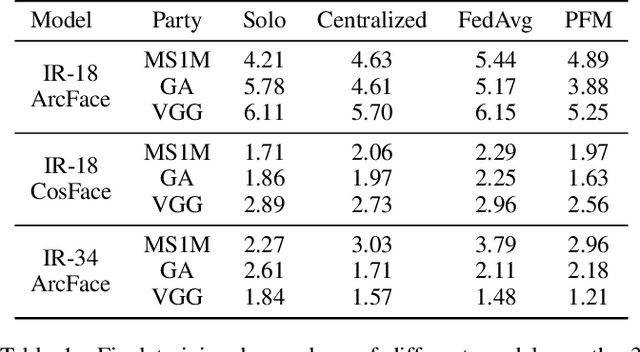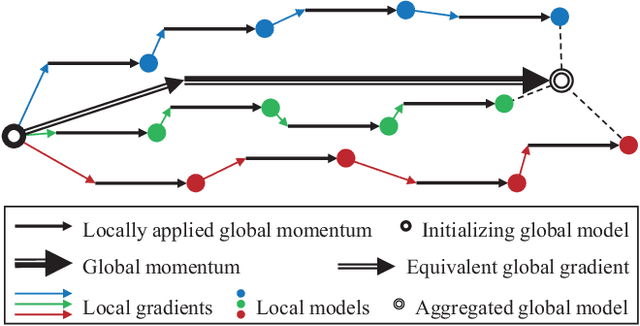Federated Face Recognition
Paper and Code
May 06, 2021



Face recognition has been extensively studied in computer vision and artificial intelligence communities in recent years. An important issue of face recognition is data privacy, which receives more and more public concerns. As a common privacy-preserving technique, Federated Learning is proposed to train a model cooperatively without sharing data between parties. However, as far as we know, it has not been successfully applied in face recognition. This paper proposes a framework named FedFace to innovate federated learning for face recognition. Specifically, FedFace relies on two major innovative algorithms, Partially Federated Momentum (PFM) and Federated Validation (FV). PFM locally applies an estimated equivalent global momentum to approximating the centralized momentum-SGD efficiently. FV repeatedly searches for better federated aggregating weightings via testing the aggregated models on some private validation datasets, which can improve the model's generalization ability. The ablation study and extensive experiments validate the effectiveness of the FedFace method and show that it is comparable to or even better than the centralized baseline in performance.
 Add to Chrome
Add to Chrome Add to Firefox
Add to Firefox Add to Edge
Add to Edge